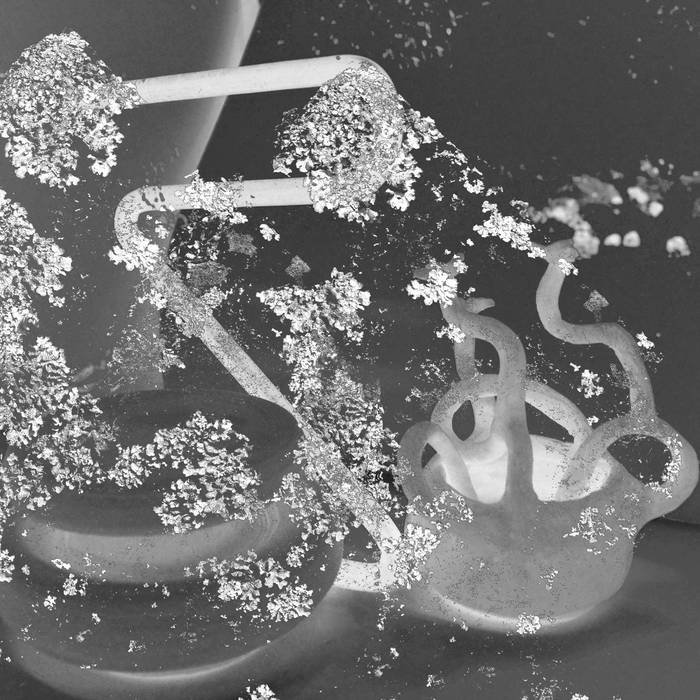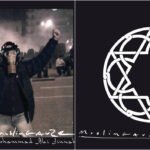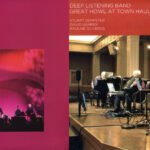Cucina Povera, “Hilja” (Night School, 2018)
This was the debut album from Glasgow-based voice artist Maria Rossi, who originally hails from Finland. The project’s name translates as “poor kitchen” and is a reference to an Italian cooking style centered around simplicity and making do with limited resources. Naturally, Rossi’s approach to her art mirrors that culinary inspiration and also takes a page from Dogme 95-style naturalism as well, as the main ingredients on Hilja are just her voice and some field recordings (along some subtle/minimal synth, some rocks appropriated as percussion instruments, and the rare & unexpected thump of a kick drum). That is all Rossi needs to cast one sublime spell after another, however, as the best moments roughly approximate a great Dead Can Dance piece woven entirely from Lisa Gerrard’s voice (though Rossi also occasionally sneaks in some more contemporary influences from R&B and elsewhere).
That said, the similarities between Rossi and Gerrard are mostly just a shared love of “mythological Fourth World” sounds, “haunted fairytales told in glossolalia,” invented languages, and ancient folk and spiritual music traditions. The most purist example of that otherworldly folk music aesthetic is “Mesikämmenen Veisu,” (The Honey Palm Song) as Rossi sounds like a one-woman chorus singing an hymnal while sloshing water lazily slaps against the side of a wooden rowboat. If it were a bit darker, it would be evocative of an enigmatic and possibly sinister Midsommar-esque cult, but it is simple and pretty instead. Normally, that would not be my scene at all, but the Rossi works some mesmerizing spatial magic with the sloshing water, which frequently sounds like it is splashing around inside my head.
My favorite piece, however, is the absolutely fucking brilliant “Kuparirumpu (copper drum),” which hypnotically combines a layered rhythmic chant with a smeary, backwards-sounding vibrato and an intense English-language lead vocal motif that lies somewhere between avant-blues and a mournful field work song. Elsewhere, “Avainsana (Keyword)” is other gently hallucinatory stunner, as a sensuous, hymn-like melody languorously unfolds while sharing the spotlight with an insistently dripping water motif that mesmerizingly pans around while accumulating spacey dub effects.
There are also a handful of more synthesizer-focused pieces, such as the dreamily pulsing and cooing ambiance of “Demetra,” which calls to mind an alternate reality in which David Lynch and Angelo Badalamenti teamed up with Enya instead of Julee Cruise. “Huhuilu” is quite beautiful as well, as a layered minor key folk melody endlessly repeats like a mantra while a brooding synth pulse flickers in and out of existence.
Elsewhere, the more experimental closer “Totean” gradually blossoms from a simple throbbing synth theme into enigmatically overlapping vocal tracks ranging from a throaty elegiac melody to sultry-sounding spoken word. It is admittedly a bizarre collision of disparate threads, as the synth part sounds like it would be perfectly at home in the opening credits of Assault in Precinct 13, but I loved how each voice sounded like it was in its own distinct acoustic environment.
In general, however, the most striking pieces are the ones that sound like they could have been recorded in an ancient enchanted forest or by a cabal of priestesses in a remote mountain temple, as Rossi’s sensuous, versatile voice is quite a mesmerizing instrument all by itself. In keeping with that theme, the difference between a good piece and great piece on Hilja (quiet) can be roughly summarized as the difference between “damn, this is great for a capella music” versus “damn, this is absolutely transcendent.”
That same dynamic extends to the rest of Cucina Povera’s discography as well, as just about every release since this one has featured at least one stone-cold stunner impressive enough to make me wonder if Rossi might actually be my favorite artist. While that spell is rarely sustained for more than a song or two, it is great while it lasts and more than enough to keep me permanently enthralled with this project. In this particular case, “Kuparirumpu” is the instant classic that blew my mind, but Hilja has an unusually high hit rate for a debut, as Rossi’s vision was seemingly singular and fully formed right from the start.
Listen here.







